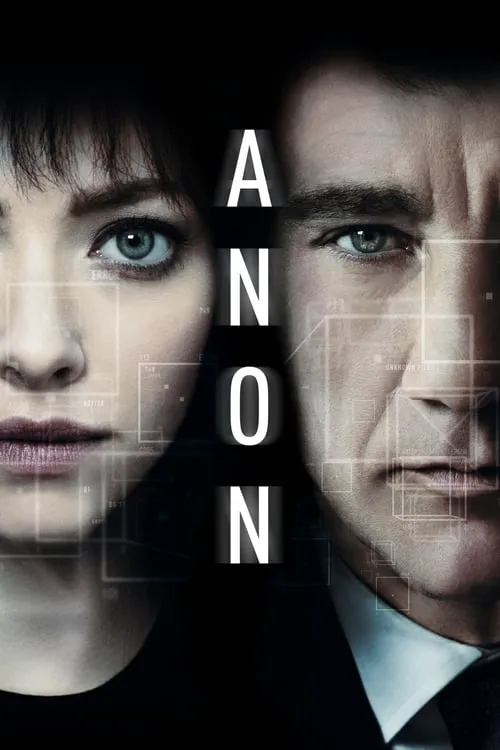Anon

Plot
In the dystopian near-future world of Anon, Director Andrew Niccol masterfully crafts a gripping narrative that delves into a society bereft of anonymity, where memories are meticulously recorded and analyzed to ensure an unparalleled level of safety. Crime has been all but eradicated, yet amidst this seemingly utopian existence, an air of unease permeates beneath the surface. It's in this eerie backdrop that our protagonist, Detective Sal Frieland, navigates the world's intricacies as he tackles a complex web of unsolved murders. Sal is portrayed by Clive Owen, a seasoned actor who brings a hint of weariness and a dash of determination to the character. As the investigator delves deeper into the cases, he begins to notice a peculiar occurrence - a young woman seems to have vanished, leaving no digital trail in her wake. She's a ghost, an anomaly in a world where every detail is monitored and recorded. This enigmatic figure is known simply as "The Girl," and it's her seeming ability to evade the system that captivates Sal. As Sal tries to uncover The Girl's true identity, he finds himself entangled in a labyrinthine world of surveillance and deception. He's aided by his intelligent and resourceful team, which includes his colleague, Detective Sam Fischer, played by Amit Shah. Through their collective efforts, they manage to glean information about The Girl's existence, yet every discovery only leads to more questions. Was she a victim of circumstance, or was she someone who actively subverted the system? Sal's growing fascination with The Girl raises more alarms within the government and the corporation that governs this society. As tensions escalate, Sal begins to experience the limitations of this so-called 'utopia' and realizes that The Girl's actions may not be a singular event but a harbinger of a new era of rebellion. He starts to question whether the benefits of a totally transparent society are worth the potential costs. With each new revelation, Sal becomes increasingly entangled in The Girl's world, risking not only his career but his very existence. As the stakes rise, Andrew Niccol masterfully manipulates the narrative, interweaving themes of free will, technology, and human relationships. Through Sal's journey, the viewer is presented with a world where memories are recorded, and every action is scrutinized, raising questions about the nature of identity. Is it conceivable that such a world could exist? Would a society where memories are monitored truly lead to a decrease in crime? Niccol leaves these questions unanswered, opting instead to allow his characters and the world he's created to speak for themselves. Throughout, the film maintains a consistent tone of unease and paranoia, much like George Orwell's classic dystopian novel, 1984. However, Niccol takes a more nuanced approach, avoiding the straightforward didacticism often associated with the genre. Anon is rather an exploration, a probing into the human condition as it interacts with technology. As viewers, we find ourselves grappling alongside Sal with the consequences of living in a world without secrets, where even recollections of past events are not safe from scrutiny. Ultimately, Sal's search for The Girl becomes less about unraveling the mysteries surrounding her disappearance and more about confronting the implications of a world in which memories are monitored. Will an existence devoid of secrets bring about a safer society, or will it instead lead to an era of resistance and anarchy? The narrative raises these questions and more, refusing to provide concrete answers, thus leaving the interpretation to the viewer.
Reviews
Recommendations




